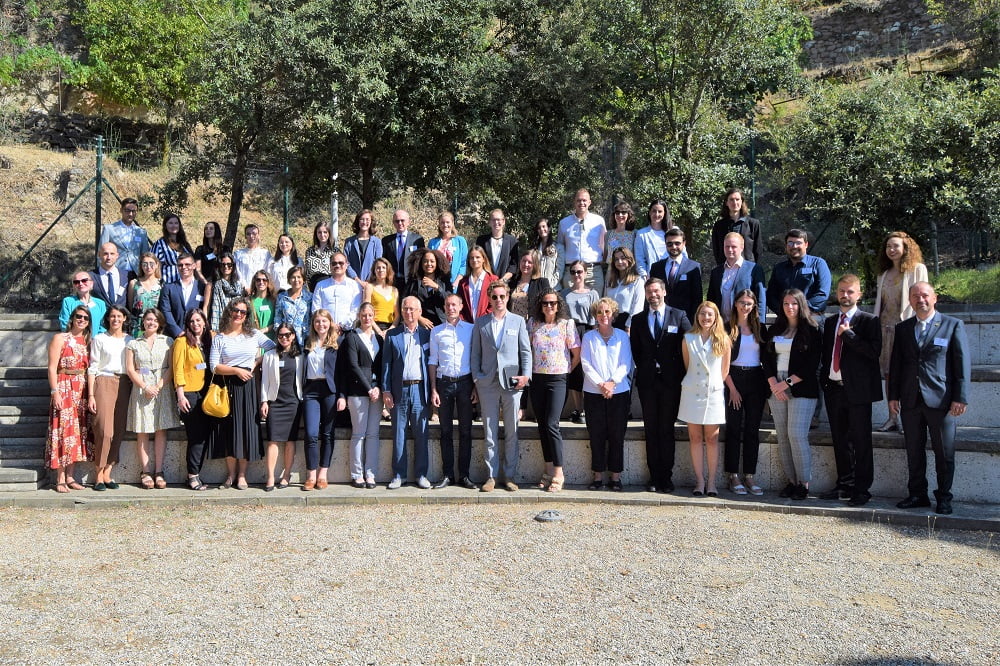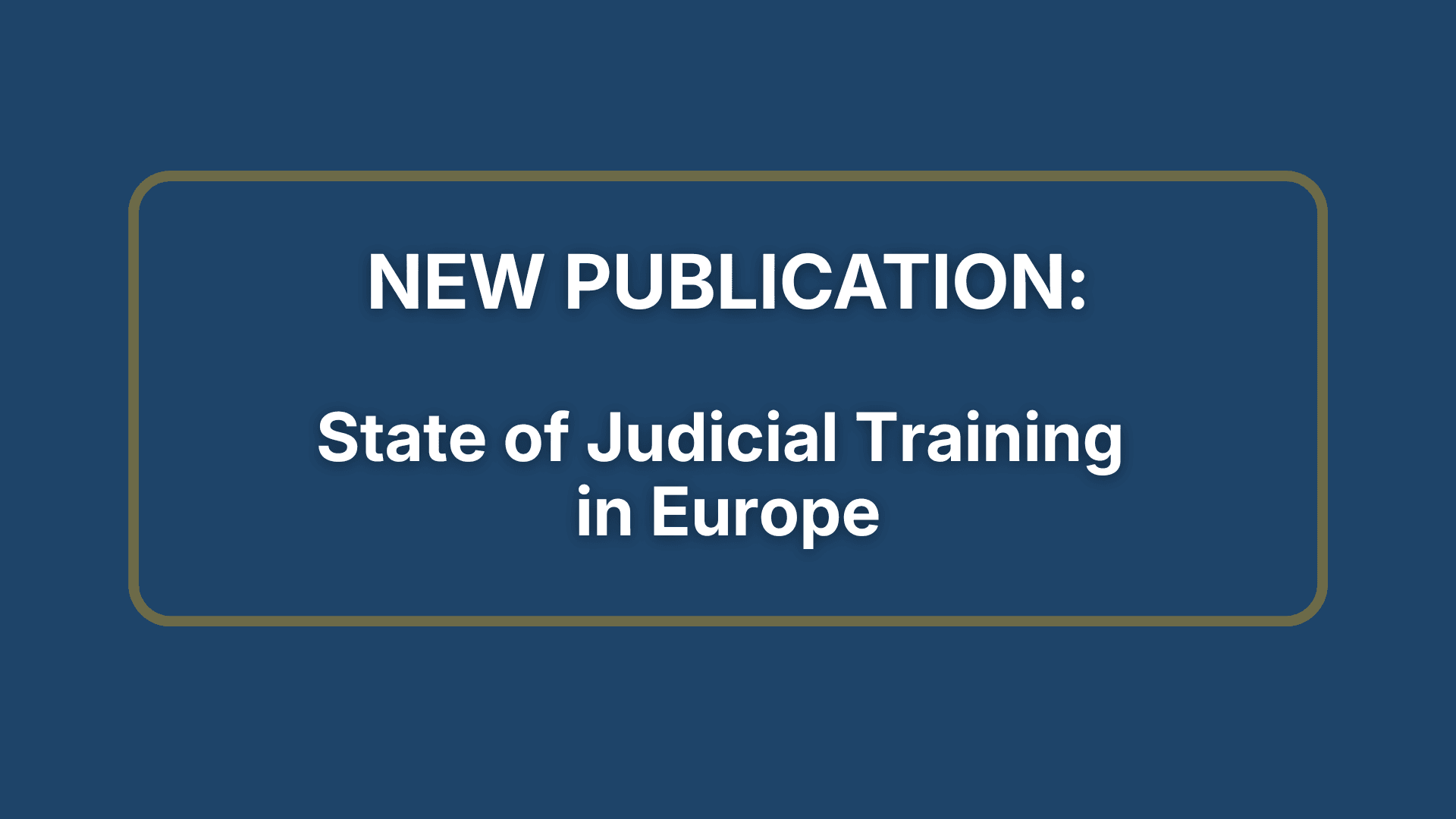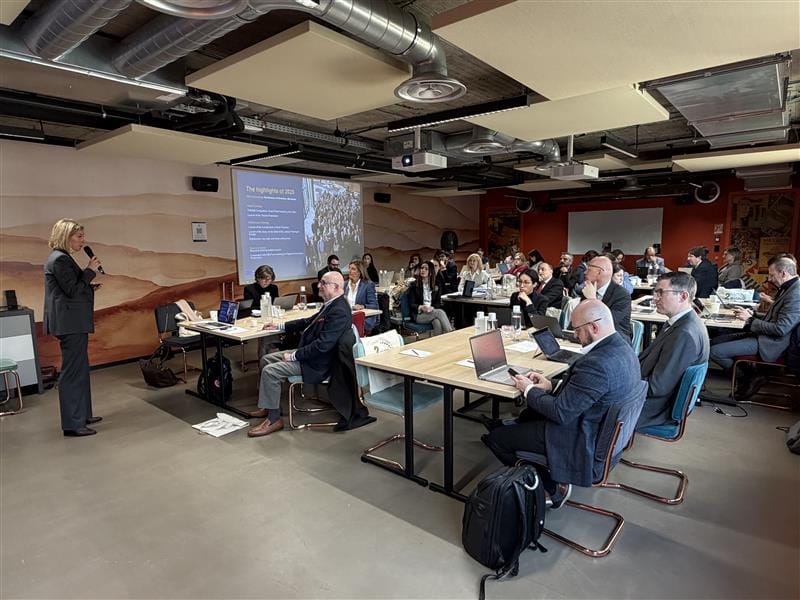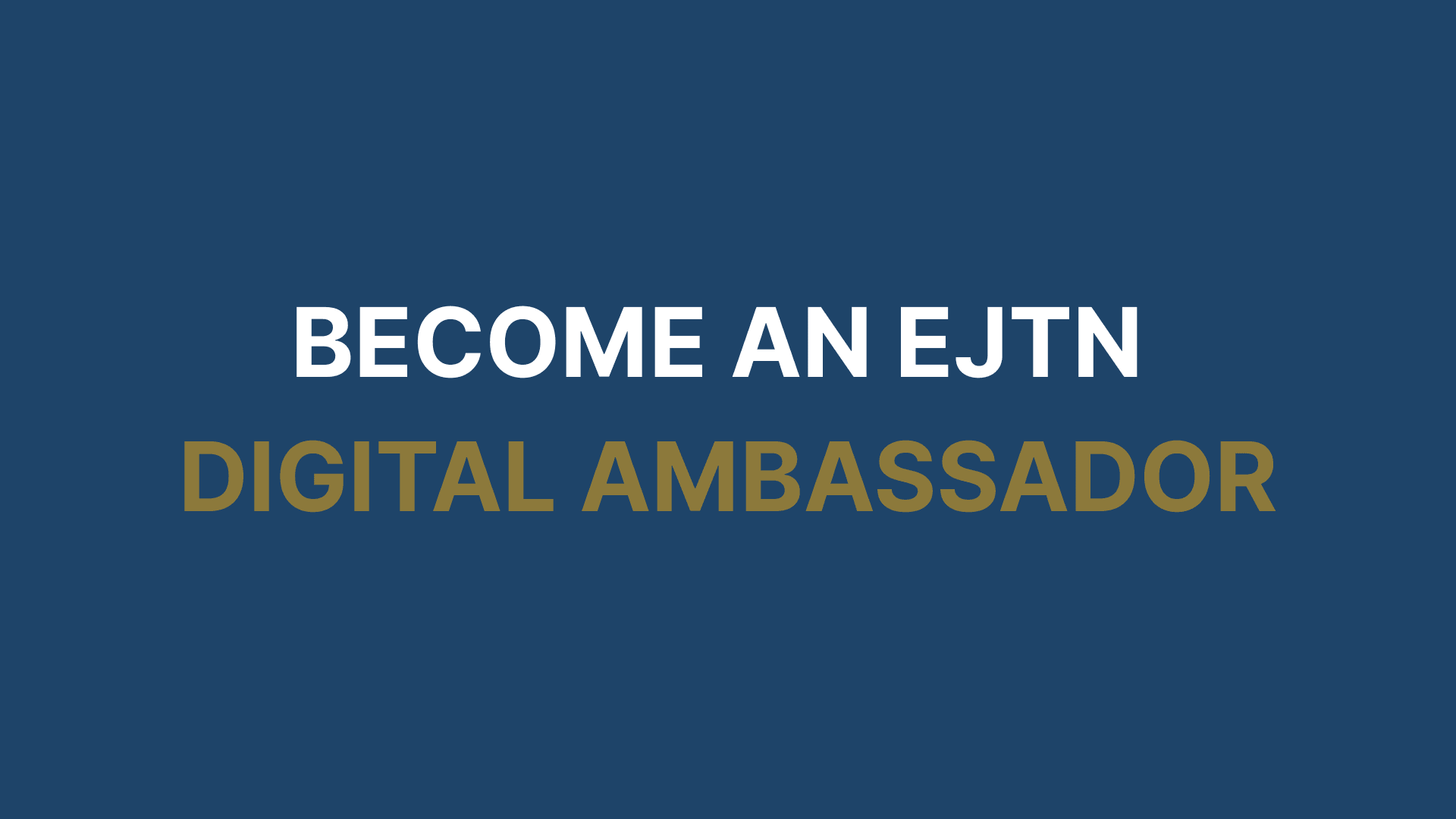EJTN is proud to present the results of the 2022 THEMIS competition Semi-Finals that were held past May, June and July. This year, no less than 35 teams of future magistrates took up the challenge… and the stage to present their views on a wide array of topics in European Law in front of their colleagues and a jury panel.
The Semi-Finals were a forum for debate, to share common values, discuss new perspectives and practice judicial skills among what a jury members called “the bright future of the European judiciary”. It was a unique opportunity to exchange new ideas and build on mutual trust.
EJTN would like to thank all participants, the jury members and hosting institutions that made these four Semi-Finals a success. From Naples to Vilnius, over Balantonszemes at the Lake Balaton, to Barcelona, the hosting institutions have shown great hospitability and a gave the participants the opportunity to discover their judicial system.
The Semi-Final consisted of the writing of a paper prior to the event, a presentation at the Semi-Final, an on-the-spot discussion with the other participants and a longer discussion with the jury. The participants presented their topics in videos, lectures, role-plays or calling on the participation of their fellow Themis competitors.
EJTN is pleased give an overview of the results of all Semi-Finals. The winners and runners-up qualified for the Grand Final in Belgrade.
Semi-Final A: EU and European Criminal Law

The School of the Judiciary of Italy hosted the first Semi-Final in the sumptuous 12th century Castel Capuano in Naples. When they were not admiring the frescos and former court rooms, participants discussed topics ranging from the use of artificial intelligence, over the European Arrest Warrant to the right to silence.
The jury members Christine Gödl, Petros Alikakos and David J. Dickson decided to give the following awards:
– Winner: Team Netherlands
– Runner-up: Team France
– Third place: Team Poland II
Jury Awards:
– Best Paper: Team Italy
– Best Presentation: Team Estonia
– Best Q&A: Team Spain
Team Netherlands (Ilse Timmermans, Steven Groen and Else Harting) and Team France (Eugénie Terneyre, Oriane Le Quintrec and Diane Leroy) qualified for the Grand Final.
Semi-Final B: EU and European Family law

The National Courts Administration of Lithuania hosted the second Semi-Final at the Neringa hotel in Vilnius. With the sound of the buffet piano in the background, the teams managed to already include the effects of recent events such as the pandemic and the invasion of Ukraine on the field of family law while also discussing upcoming changes in the law such as the Brussels IIa Recast regulation.
The jury members Boriana Musseva, Ilse Couwenberg and Irena Fausch decided to give the following awards:
– Winner: Team France
– Runner-up: Team Czechia
– Third place: Team Germany
Jury award:
– Outstanding performance in the Q&A session: Clara Maria Lehner from Team Germany
Team France (Mathilde Enslen, Auriane Villeminot and Etienne Thomas) and Team Czechia (Luisa Blahová, Jana Kapounová and Jan Šeba) qualified for the Grand Final.
Semi-Final C: EU and European Civil Procedure

For those that thought Budapest would be where the Hungarian Academy of Justice was going to host the third Semi-Final… think again. The Themis participants had the honour to be the first international guests at the academy’s new training facilities of the academy at the Balaton lakefront in Balatonszemes. The summer heat had inspired many of the participants to discuss climate change and civil procedure while others focussed on the Court of Justice’s jurisprudence.
The jury members Aleš Galič, Apostolos Anthimos and Carlos Santaló Goris decided to give the following awards:
– Winner: Team Romania
– Runner-up: Team Netherlands
– Third place: Team Germany
Jury Award:
– Most innovative presentation: Team Hungary Prosecutors
Team Romania (Artiom Radu, Adelina Maria Tudurachi and Tudor Iulian Lazoc) and Team Netherlands (Vincent Abbing, Mirjam Hinskens-Van Neck and Maartje Speksnijder) qualified for the Grand Final.
Semi-Final C: Judicial Ethics and Professional Conduct

The Spanish General Council of the Judiciary hosted an intense Semi-Final in the Judicial School located on a hill overlooking the magnificent ciudad condal Barcelona. Strong positions and heated discussions (imagine 11 passionate teams in the Barcelonese summer) on the independence of the judiciary, the freedom of speech of magistrates alternated with surprising insights in how to make the courts more accessible to parties seeking justice.
The jury members Cristina San Juan Serrano, Christa Christensen and Goran Selanec decided to give the following awards:
– Winner: Team Greece
– Runner-up: Team Austria
– Third place: Team Poland
Jury Awards:
– Best presentation methodology: Team Romania
– Innovation in Creating the Ethics Platform: Team Bulgaria
– Outstanding Analysis of the Challenges of the Rule of Law and Judicial Ethics: Team Poland
Team Greece (Stefanos Kremetis, Athanasia Kosmidou and Christina Yiasin) and Team Austria (Hannah Stadlober, Kerstin Wick and Susanne Demuth) qualified for the Grand Final.
EJTN would like to thank again the national hosts, the tutors and the national coordinators, who year by year motivate new teams to take on the challenge and support them during the whole competition. This year, again, a new generation of magistrates took the stage, presented their ideas and crowned the event with a discussion with the jury over the law.
We hope everyone followed our dear jury member David J. Dickson’s Shakespearean advice: ‘do as adversaries do in law: strive mightily, but eat and drink as friends’. THEMIS unique atmosphere offered for heated discussion over the law at daytime and for strengthening the European spirit of trust and cooperation over a couple of drinks in the evening.
The 8 teams that qualified will participate in the Grand Final between 12 and 16 December 2022 in Belgrade, the home city of last year’s THEMIS competition winners from Serbia. The Judicial Academy of the Republic of Serbia will host the Grand Final. The theme of the final is Access to Justice.




